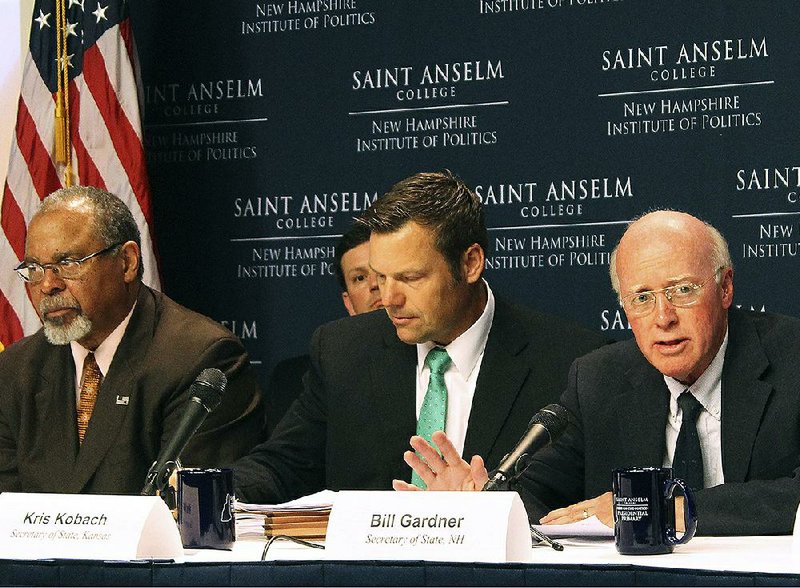WASHINGTON -- President Donald Trump's advisory commission on election integrity has integrity questions of its own.
This past week, two members sent letters to commission staff complaining about a lack of information about the panel's agenda and demanding answers about its activities. The criticism was unusual because it came from people who are supposed to be privy to the commission's internal discussions and plans.
In a letter sent Oct. 17, Maine Secretary of State Matthew Dunlap said he was not being made aware of information pertaining to the commission. He requested copies of all correspondence between commission members since Trump signed the executive order creating it in May.
"I am in a position where I feel compelled to inquire after the work of the commission upon which I am sworn to serve, and am yet completely uninformed as to its activities," Dunlap wrote in his letter to Andrew Kossack, the commission's executive director.
[PRESIDENT TRUMP: Timeline, appointments, executive orders + guide to actions in first 200 days]
He said he had received no information about the commission's research or activities since its last meeting, on Sept. 12. He also said he continued to receive media inquiries about commission developments "that I as a commissioner am blind to."
A commissioner from Alabama, Jefferson County Probate Judge Alan King, said he sent a similar letter late last week. He said the only information he has received since the commission's meeting more than a month ago was an email informing him of the death of a fellow commissioner, former Arkansas state lawmaker David Dunn.
"Here I am on this high-level government committee, and I don't know when the next meetings are or how many meetings there will be," he said in a telephone interview. "I am in the dark on what will happen from this point on, to tell you the truth."
King and Dunlap are two of four Democrats on the 11-member commission.
Requests for comment sent to Kossack and to the commission's vice chairman, Kansas Secretary of State Kris Kobach, were not returned.
J. Christian Adams, a commission member who was a Justice Department attorney under former President George W. Bush, said in an email that all commissioners were receiving the same information.
"Once upon a time election integrity was bipartisan," Adams said in the email. "Apparently not all agree. That's a shame."
The commission has stirred controversy from the moment it was established last spring. Critics argue that the commission is stacked with people who favor voting restrictions and has a predetermined agenda to make it more difficult for people to cast ballots. Others have raised concerns that Trump will use the commission to support his claims of widespread voter fraud that he has said cost him the popular vote in the 2016 presidential election.
The commission's first significant action was to request a wide range of information about all registered voters in every state, including partial Social Security numbers, dates of birth, addresses and voting history.
The Lawyers' Committee for Civil Rights Under Law has filed a lawsuit accusing the commission of violating federal open meetings and disclosure laws.
"We have found that, in every respect, this commission has been carrying out its activities in an almost covert fashion," said Kristen Clarke, the group's executive director.
Democratic U.S. senators have filed at least five separate requests for information with the commission since June, and a Sept. 12 follow-up letter noted that none of those had received a response.
"The Commission has not responded to a single letter from Senators with oversight jurisdiction over the Commission and continues to be rebuked for its questionable activities," said the letter by Democratic Sens. Amy Klobuchar of Minnesota and Sheldon Whitehouse of Rhode Island.
Last week, a group of three Democratic senators wrote the Government Accountability Office seeking an investigation into the commission. The letter signed by Sens. Michael Bennet of Colorado, Cory Booker of New Jersey and Klobuchar cited a lack of transparency on the commission and concern that its conclusions would diminish confidence in the democratic process.
"It is incredible that they are not responding to any of this stuff, and that's why it's appropriate for GAO to take a look," Bennet said in an interview.
A Section on 10/23/2017
